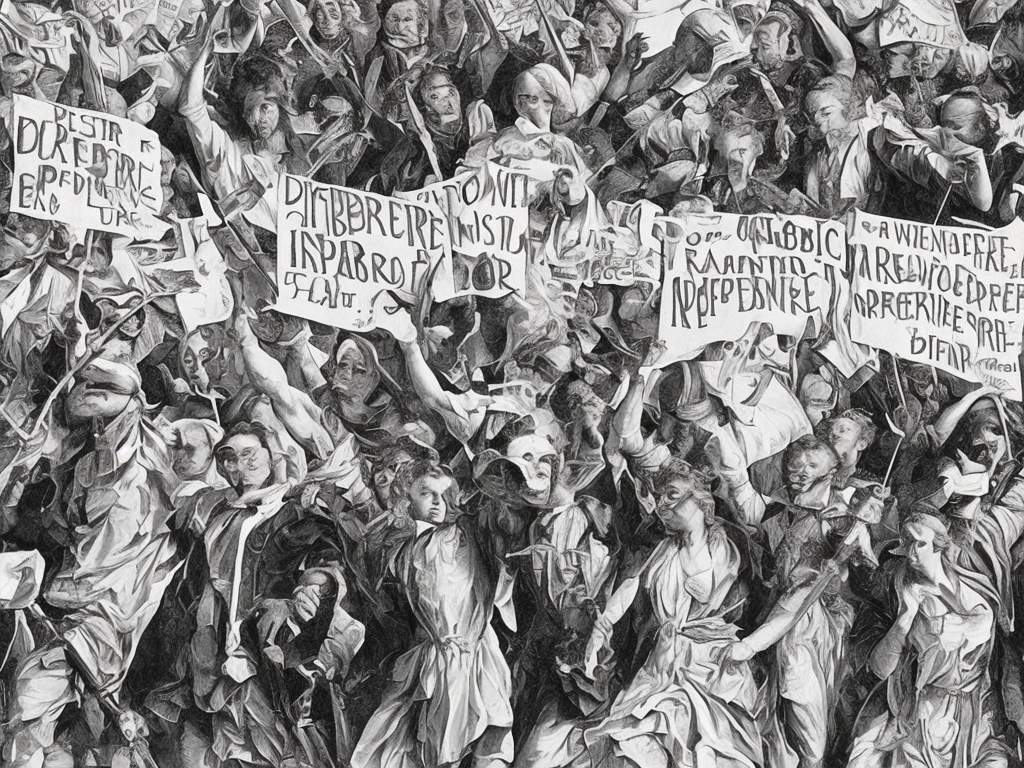
The concepts of independence and republic are often misunderstood and used interchangeably, but they refer to two distinct political systems and principles. Understanding the difference between independence and republic is essential in order to have a comprehensive grasp of political theory and practice.
Independence is a state or condition characterized by freedom from external control or influence. It implies self-governance and the ability to make decisions and act without interference from external powers. Independence can manifest in various ways, ranging from political independence to economic or personal independence. However, the primary focus of this article will be political independence.
Political independence is the sovereignty of a nation or region to govern itself without interference or dominance from another country or external power. It involves the ability to establish and maintain institutions, make laws, and engage in international relations on one's own terms. Examples of political independence include the American Revolution when the Thirteen Colonies proclaimed their independence from Great Britain, resulting in the formation of the United States of America, or India's independence from British colonial rule in 1947.
A republic, on the other hand, is a form of government where power is held by the people and their elected representatives. A republic is characterized by the absence of a monarch or hereditary ruler, and instead, political authority is vested in the citizens who elect their leaders through a democratic process. The term "republic" is derived from the Latin phrase "res publica," which means "the public affair" or "commonwealth." The establishment of a republic is often associated with the overthrow of monarchy and the establishment of a more democratic political system.
While independence and republic can coexist, they are not synonymous. A country can be independent but not a republic, as illustrated by various autocratic or authoritarian independent states throughout history. For instance, during the Cold War, many countries in Eastern Europe technically had political independence from the Soviet Union but were not republics. Instead, they were under communist regimes, where the Communist Party held supreme power. These regimes had one-party systems, limited political rights, and lacked a separation of powers between the legislative, executive, and judicial branches.
Conversely, a republic may not necessarily be independent, especially in cases where it is a constituent part of a larger entity. Even though it has its own government and political institutions, it may still be subject to external control or influence. Hong Kong, for example, is considered a Special Administrative Region of the People's Republic of China, which means it has a high degree of autonomy in several areas, but ultimately falls under the sovereignty of the Chinese government.
In a republic, the power to govern ultimately resides with the people or their elected representatives. This distinguishes a republic from other forms of government, such as an absolute monarchy or an oligarchy, where political power is concentrated in the hands of a single ruler or a small group of elites. In a republic, citizens exercise their political rights through voting and participating in public affairs. They elect representatives who make decisions on their behalf, creating a government that is accountable to the people.
One of the key principles in a republic is the rule of law, which ensures that the government operates within a framework of rules and regulations that apply equally to all citizens. This prevents arbitrary exercise of power and protects individual rights and freedoms. In a republic, the constitution serves as the foundation for the legal system and is the supreme law of the land. It outlines the structure of government, the rights of citizens, and the limitations on the power of the state.
Additionally, in a republic, there is usually a separation of powers between the branches of government. This division of powers ensures a system of checks and balances, where no one branch can become too powerful or abuse its authority. The executive, legislative, and judicial branches have distinct roles and responsibilities, with each acting as a check on the others. This separation of powers helps prevent the concentration of power in the hands of a few and promotes accountability and transparency in government.
In summary, independence refers to the state or condition of being free from external control or influence, particularly in a political sense. It implies self-governance and the ability to make decisions without interference. A republic, on the other hand, is a form of government where power is held by the people and their elected representatives. It is characterized by the absence of a monarch and a system of government that operates under the rule of law, with a separation of powers and a democratic framework. While independence and republic can overlap, they represent distinct concepts, each with their own significance in political theory and practice.
 Self-Instruct
Self-Instruct